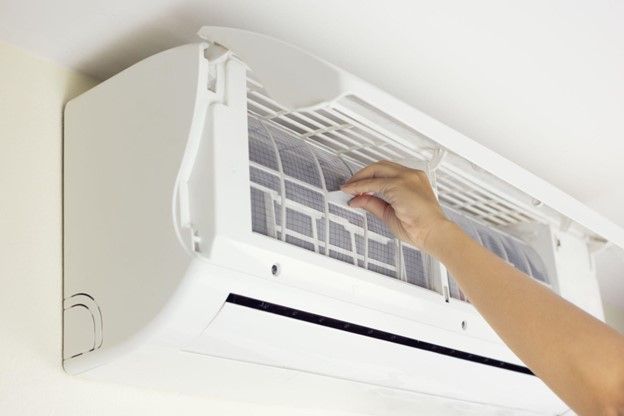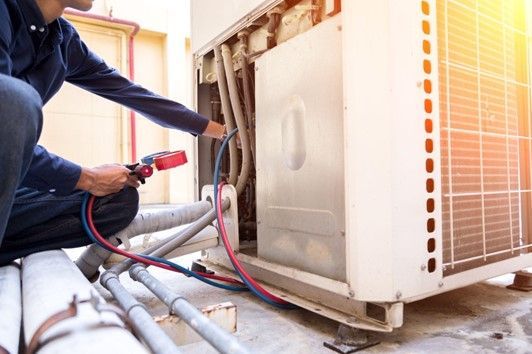Common HVAC Problems and How to Prevent Them

Your HVAC system is essential to maintaining a comfortable and healthy environment in your home or business. However, like any complex system, it can experience issues over time. Identifying and addressing common HVAC problems early can help prolong the lifespan of your unit, improve its efficiency, and save you money on repairs. Let’s explore some of the most common HVAC issues and provide tips on how to prevent them.
1. Dirty Air Filters
Air filters are designed to trap dust, debris, and other particles from the air circulating through your HVAC system. Over time, these filters can get clogged, restricting airflow and making your HVAC system work harder than it needs to.
Prevention Tip: Change your air filters regularly, ideally every 1-3 months, depending on how much you use your system and the type of filter. If you have pets or live in a dusty area, you might need to replace them more often.
2. Refrigerant Leaks
Refrigerant is crucial for the cooling process in your air conditioning unit. If there’s a refrigerant leak, the HVAC system will lose its cooling power and may eventually stop working altogether.
Prevention Tip: Ensure regular maintenance from a professional HVAC technician to check for leaks and recharge the refrigerant when necessary. Keeping the coils clean and preventing damage to the lines can help reduce the likelihood of leaks.
3. Thermostat Malfunctions
When your thermostat isn’t working right, it can cause temperature fluctuations and lead to inefficient energy use. This makes your HVAC system run more than necessary, increasing your energy bills.
Prevention Tip: Calibrate your thermostat regularly to ensure it’s reading the temperature accurately. If you have an older model, consider upgrading to a smart thermostat for better control over your energy usage and comfort.
4. Clogged Condensate Drains
Condensate drains help remove excess moisture that builds up in your HVAC system. If the drain becomes clogged, it can lead to water damage and even mold growth.
Prevention Tip: Keep the condensate drain clear by cleaning it regularly. If you’re unsure how to do this, your HVAC technician can include this in a routine maintenance check.
5. Faulty Ductwork
Leaky or poorly insulated ducts can cause your HVAC system to lose efficiency by allowing heated or cooled air to escape before it reaches its destination. This can result in uneven temperatures and higher energy costs.
Prevention Tip: Schedule duct inspections to detect leaks, holes, or blockages. Sealing and insulating the ducts can significantly improve your system’s performance and efficiency.
6. Overheating System
Your HVAC system can overheat if there’s not enough airflow or if it’s running too long without a break. This is often caused by a dirty air filter, clogged vents, or malfunctioning parts.
Prevention Tip: Keep vents clear of obstructions and make sure there’s adequate airflow throughout your home or business. Regular HVAC tune-ups can help prevent overheating and keep your system running smoothly.
7. Strange Noises
Banging, rattling, or squealing noises coming from your HVAC system can indicate mechanical issues such as a loose part or worn-out components. Ignoring these sounds could lead to further damage and costly repairs.
Prevention Tip: If you hear unusual noises, call a technician immediately to inspect and repair the system. Regular maintenance can also help catch worn-out parts before they fail.
8. Reduced Airflow
If your HVAC system is blowing weak or no air at all, it may be due to a dirty filter, malfunctioning fan, or ductwork issues. Reduced airflow can affect your system’s ability to regulate temperature effectively.
Prevention Tip: Check air filters and ensure they’re clean. Also, inspect the ducts for any blockages that may be obstructing airflow.
9. Ignition or Pilot Light Problems
Gas furnaces rely on a pilot light or ignition system to produce heat. If there’s an issue with ignition, the furnace won’t operate, leaving your space without heat during cold months.
Prevention Tip: Regularly check the pilot light and ignition system. If the light frequently goes out, it could be a sign of a deeper issue that requires professional attention.
10. Aging HVAC System
As HVAC systems age, they become more prone to breakdowns and inefficiencies. An old unit may need more frequent repairs and become less effective at regulating temperature.
Prevention Tip: If your HVAC system is over 10-15 years old, consider upgrading to a newer, more energy-efficient model. Regular maintenance can extend the life of your system, but eventually, replacement may be the most cost-effective solution.
If you’re experiencing any HVAC problems or need routine maintenance, reach out to C J Services Inc. for expert HVAC services. Serving the Gulf Coast, Mississippi area, our team is dedicated to keeping your home or business comfortable year-round. Call us today at (228) 539-0842 to schedule your appointment and ensure your HVAC system runs efficiently all year long.


